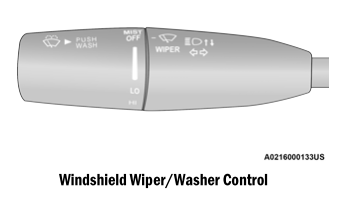Dodge Charger: STARTING AND OPERATING / CRUISE CONTROL SYSTEMS — IF EQUIPPED
Dodge Charger 2011-2026 Owner's Manual / STARTING AND OPERATING / CRUISE CONTROL SYSTEMS — IF EQUIPPED
Your vehicle may be equipped with the Cruise Control system, or the Adaptive Cruise Control (ACC) system:
- Cruise Control for cruising at a constant preset speed.
- Adaptive Cruise Control (ACC) for maintaining a set distance between you and the vehicle ahead using Fixed Speed Cruise Control to automatically adjust the preset speed.
NOTE:
In vehicles equipped with ACC, if an ACC distance is not set, Fixed Speed Cruise Control will not detect vehicles directly ahead of you. Always be aware of the mode selected.
- Cruise Control — If Equipped
- Adaptive Cruise Control (ACC) — If Equipped
- Adaptive Cruise Control (ACC) Operation
- Adaptive Cruise Control (ACC) Menu
- Activating Adaptive Cruise Control (ACC)
- To Activate/Deactivate
- To Set A Desired Speed
- To Cancel
- To Turn Off, To Resume
- To Vary The Speed Setting
- Setting The Following Distance In ACC, Overtake Aid
- ACC Operation At Stop
- Display Warnings And Maintenance
- Precautions While Driving With ACC
 ELECTRIC POWER STEERING
ELECTRIC POWER STEERING
The Electric Power Steering system will give you good vehicle response and increased
ease of maneuverability in tight spaces. The system will vary its assist to provide
light efforts while parking and good feel while driving...
 Cruise Control — If Equipped
Cruise Control — If Equipped
When engaged, the Cruise Control takes over accelerator operations at speeds
greater than 25 mph (40 km/h) or 20 mph (32 km/h), depending on engine size and
axle ratio...
Other information:
Dodge Charger 2011-2026 Owner's Manual: Towing Requirements — Trailer Lights And Wiring
Whenever you pull a trailer, regardless of the trailer size, stoplights and turn signals on the trailer are required for motoring safety. The Trailer Tow Package may include a four- and seven-pin wiring harness. Use a factory approved trailer harness and connector...
Dodge Charger 2011-2026 Owner's Manual: Replacing The Battery In The Key Fob
The recommended replacement battery is one CR2032 battery. NOTE: Customers are recommended to use a battery obtained from Mopar®. Aftermarket coin battery dimensions may not meet the original OEM coin battery dimensions. Perchlorate Material — special handling may apply...
Categories
- Manuals Home
- Dodge Charger Owners Manual
- Dodge Charger Service Manual
- Blind Spot Monitoring (BSM) — If Equipped
- SCHEDULED SERVICING
- ELECTRIC POWER STEERING
- New on site
- Most important about car
WINDSHIELD WIPERS AND WASHERS
The windshield wiper/washer controls are located on the multifunction lever on the left side of the steering column. The front wipers are operated by rotating a switch, located on the end of the lever.

Copyright © 2026 www.docharger.org
